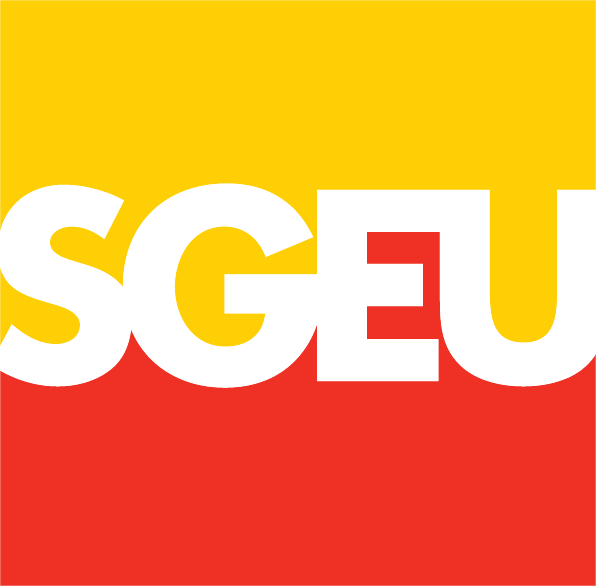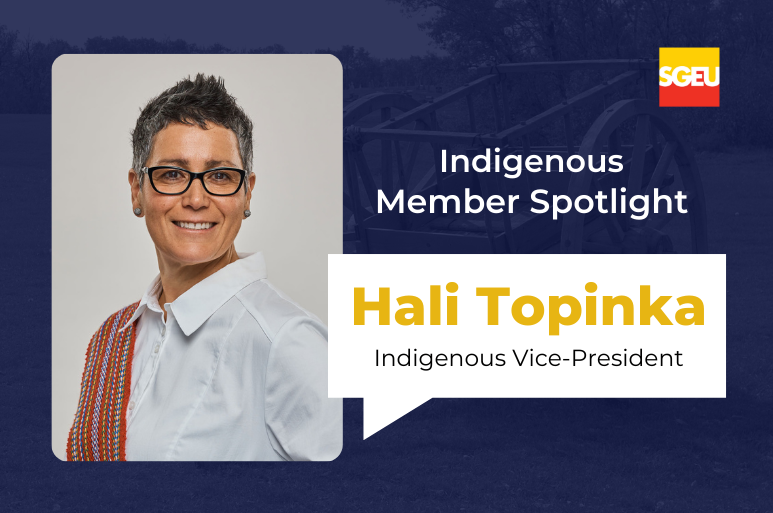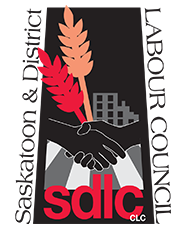Hali Topinka is a proud Métis woman and a 26-year member of SGEU’s Public Service Sector. She currently works as Cultural Coordinator at the Paul Dojack Youth Centre.
A devoted labour activist within SGEU and beyond, Hali currently serves as Local 1101 treasurer, chair of the Convention Procedures Committee, chair of the NUPGE Indigenous Committee, a member of the Canadian Labour Congress’s Indigenous Working Group, and SGEU’s Indigenous Vice-President.
Her union involvement began when she was invited to a PS/GE meeting by friend and fellow member Muna De Ciman.
“It was the first union event I’d ever been involved in,” said Hali. “After that, I was hooked. I started attending local meetings, then became a steward, then I was elected as Sports and Entertainment Chair at the local level, then I branched out to other committees and the treasurer role within my local.”
In 2021, she was the first SGEU member elected to the newly created role of Indigenous Vice-President.
“This wasn’t just a new role for SGEU, it was the first of its kind in the Canadian labour movement as well,” said Hali. “I feel privileged to have been able to advocate for members in this position, and I will continue to push for opportunities to amplify Indigenous voices within the union.”
Hali has served on SGEU’s Human Rights and Equity Committee, the Education Committee and she is currently a member of the SGEU Indigenous Committee, where she helps advocate for education and action within the union.
“What we’re working on is making the Indigenous Committee a strong committee within SGEU and making sure that SGEU is following a path of Truth and Reconciliation.”
According to Hali, an upcoming priority for the committee is making sure the union knows and understands its Indigenous members. This includes allowing Indigenous members to self-identify, sending out tailored communications and retooling LD 70: Unionism on Turtle Island so that it is “more in tune with who our members are today.”
“A lot of Indigenous people—including members of the Indigenous committee—are still learning their own culture too. We’re all constantly learning and growing.”
Hali also says the committee works to raise awareness around calendar dates like National Indigenous Storytelling Month, National Indigenous Peoples Day, and the National Day for Truth and Reconciliation.
“Some of the teachings I’ve had are around dates like the summer solstice, winter solstice, and the spring equinox. My mom is an Old One, and her teaching to me is that these are times when people started hunting, gathering and preparing for the new seasons. Recognizing these times is something that is important to her.”
Busting common myths is also important to Hali and her fellow committee members.
“For instance, it’s a myth that Indigenous people are automatically experts on everything Indigenous,” she said. “A lot of Indigenous people—including members of the Indigenous committee—are still learning their own culture too. We’re all constantly learning and growing.”
When asked about what members can do to support the work of the committee, Hali says communication is key.
“Have an open line of communication. Share resources. Share your Elders and Old Ones. Share your knowledge keepers. Share your experiences. Let us know what is happening in your workplace. If you’ve got an issue related to your culture or identity, don’t hesitate to reach out.”






